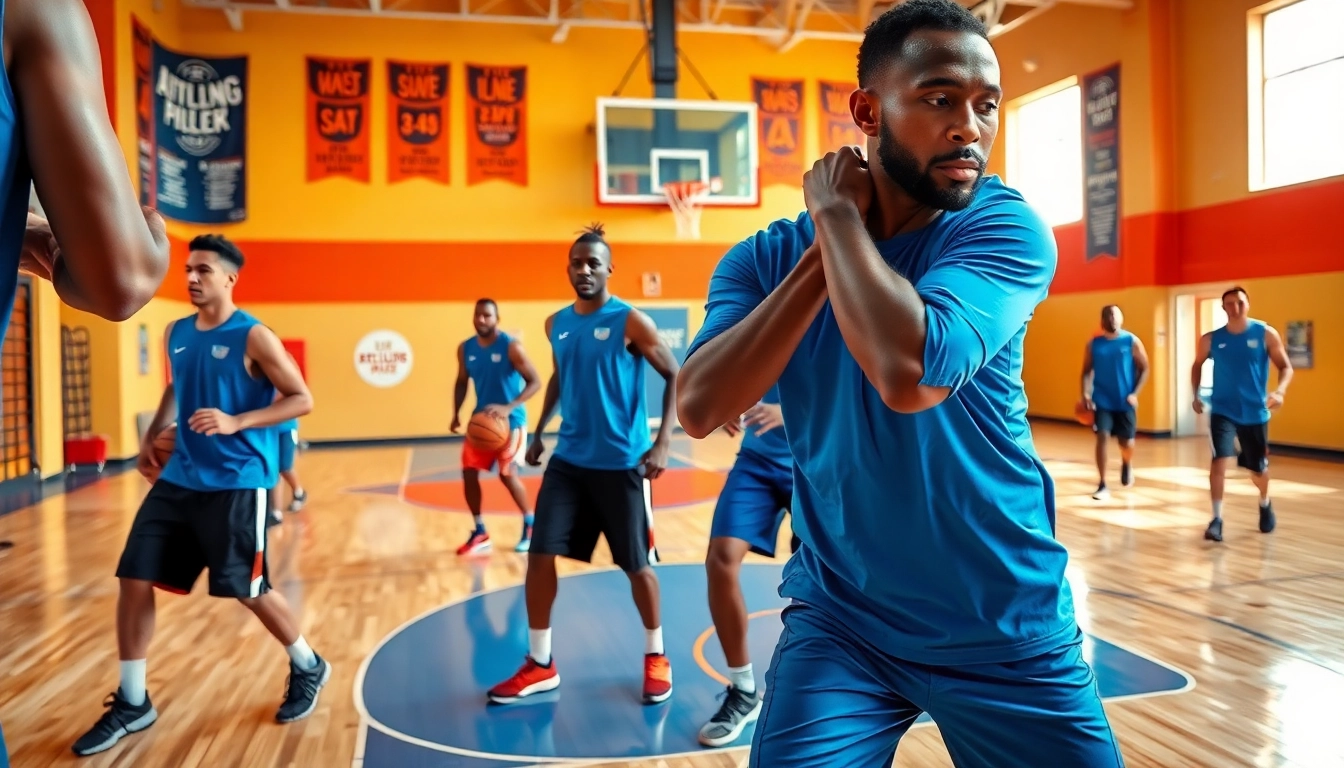Understanding Basketball Training Programs
What Are Basketball Training Programs?
Basketball training programs are structured frameworks designed to enhance players’ skills and performance on the court. They can range from comprehensive coaching sessions to individual drills focusing on specific skills such as shooting, dribbling, passing, and defensive techniques. These programs are tailored to meet the diverse needs of players at various skill levels—from beginners just learning the fundamentals to experienced athletes preparing for collegiate or professional play. Many of these programs are offered both in-person and online, providing accessibility for all aspiring athletes. For those seeking detailed insights into some of the best basketball training programs, a variety of options exist to fit different needs and schedules.
Key Components of Effective Training
Effective basketball training programs typically include the following components:
- Skill development: Focused on refining basic skills like shooting mechanics, dribbling control, and passing accuracy.
- Strength and conditioning: Programs that incorporate physical training aimed at improving overall athleticism, agility, and stamina.
- Tactical understanding: Teaching players how to read defenses, make strategic decisions, and improve game IQ.
- Game simulations: Practice games or scrimmages that allow players to apply learned skills in a competitive environment.
The Benefits of Structured Training Programs
The advantages of participating in structured basketball training programs are extensive and can significantly impact a player’s development. Some of the key benefits include:
- Focus and accountability: Structured programs hold players accountable, ensuring consistent practice and dedication.
- Expert guidance: Training overseen by experienced coaches fosters the acquisition of skills and techniques effectively.
- Progress tracking: Many programs implement performance metrics that allow players to see their improvement over time.
- Community and networking: Training with peers encourages camaraderie and may lead to invaluable connections in the basketball community.
Finding the Right Program for Your Skill Level
Assessing Your Current Skill Level
Determining your current skill level is the first step in finding a suitable basketball training program. Players can self-assess by analyzing their performance in actual games or revisiting feedback from coaches. Key factors to consider include:
- Current technical skills (shooting, passing, etc.)
- Physical conditioning and endurance
- Game intelligence (understanding plays and strategies)
- Past experience in competitive basketball environments
Beginner vs. Advanced Training Options
Training programs are typically categorized into beginner, intermediate, and advanced levels. Beginners often benefit from fundamental skills training that emphasizes a solid foundation. Conversely, advanced players may require specialized coaching in areas like shot optimization, defensive tactics, or mental preparation for high-stakes games. Each program should cater to its target audience to maximize learning and development.
Tailoring Programs to Personal Goals
Every athlete has unique goals—whether it be making a school team, improving specific skills for a competitive league, or preparing for college basketball. Tailoring a training program to meet these goals is crucial. This might involve prioritizing certain skills, adjusting training intensity, or even incorporating psychological training to bolster mental resilience.
Top Basketball Training Programs Explored
Local vs. Online Training Programs
When choosing a basketball training program, the decision between local and online options is paramount. Local programs offer face-to-face interaction with coaches and immediate feedback in a live practice environment. Some notable local programs include Evolution Basketball Training and Pro-Fit Basketball Training, which serve players in specific regions. On the other hand, online training programs can reach a broader audience and are especially appealing for those who cannot attend local sessions due to geographical constraints. Options like Jordan Lawley’s online training courses provide comprehensive skill development videos and progressive drills that players can complete at their pace.
Notable Coaches and Their Programs
Many basketball training programs are led by respected figures in the sport, including professional coaches and former players. For instance, Drew Hanlen’s Pure Sweat Basketball is known for personalized training experiences that focus heavily on skill enhancement through innovative techniques. Coaches with a proven track record often design their programs to draw on their own experiences and knowledge gained from years of participation at high levels of competition.
Innovative Techniques in Modern Training
Modern basketball training has evolved significantly, incorporating advanced techniques like video analysis and performance metrics tracking. Techniques such as virtual reality training simulate game scenarios, helping players develop decision-making skills in high-pressure situations. Moreover, specialized training tools like shooting machines and resistance bands help refine technique while boosting player strength and conditioning.
Key Metrics for Evaluating Training Programs
Evaluating Performance Improvement
Assessing the impact of a training program on performance is essential for ensuring its efficacy. Metrics to consider include:
- Improvement in shooting percentage
- Decrease in turnovers per game
- Enhanced physical capabilities (speed, strength)
- Feedback from coaches regarding tactical and technical growth
Feedback from Participants and Coaches
Gathering feedback from both participants and coaches offers qualitative insight into the strengths and weaknesses of a training program. Surveys and performance evaluations can be instrumental in identifying areas that may require adjustment to enhance overall effectiveness.
Cost vs. Value Assessment
While cost is an important factor when selecting a training program, it should not be the sole criterion. Evaluating the value provided by a program in terms of the quality of coaching, resources available, and potential for personal development is crucial. Players should consider how well the program’s offerings align with their specific goals and the improvement they have observed in their skills and performance outcomes.
Staying Motivated During Training
Setting Realistic Goals and Timelines
Maintaining motivation throughout a training program is vital for long-term success. Athletes should establish realistic, measurable goals and timelines that reflect personal ambitions. Aligning short-term objectives with longer-term aspirations ensures continued engagement and motivates consistent effort.
The Role of Mental Toughness in Training
Developing mental toughness is as crucial as physical training in basketball. Athletes should work on building resilience through visualization techniques, mindfulness practices, and positive self-talk. This psychological aspect can significantly influence performance on the court during high-pressure scenarios.
Joining Communities and Support Networks
Engaging with fellow athletes, coaches, and basketball enthusiasts fosters a supportive environment that enhances motivation. Joining local recreational leagues, online forums, or training workshops can connect players with like-minded individuals who share their passion for the sport. This camaraderie can provide encouragement and accountability, making it easier to stay committed to their training regimens.



